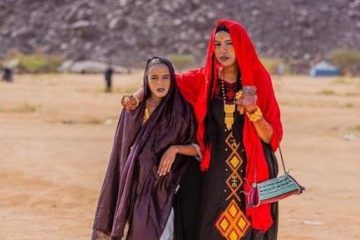Finding “Our Sexuality 14th Edition PDF Free”
Locating free PDFs of specific textbooks like “Our Sexuality” 14th edition presents challenges. Copyright laws protect intellectual property, making unauthorized distribution illegal. Ethical considerations arise regarding respecting authors’ rights and publishers’ investments.
Challenges in Accessing Free Textbooks
Securing free textbook PDFs, especially for specialized subjects like human sexuality, presents numerous hurdles. Publishers and authors hold copyrights, protecting their intellectual property and financial investments. Unauthorized distribution infringes these rights, leading to legal consequences. Furthermore, the quality of freely available materials can be questionable, potentially containing inaccuracies, incomplete content, or outright plagiarism. Finding reliable, accurate, and legally sound free resources requires diligent searching and critical evaluation, often proving more time-consuming than simply purchasing or renting the textbook. The scarcity of legitimate free options highlights the inherent challenges in balancing accessibility with copyright protection in educational materials.
Legal and Ethical Considerations of Free Downloads
Downloading copyrighted textbooks like “Our Sexuality,” 14th edition, without authorization raises significant legal and ethical concerns. Copyright infringement is a serious offense, potentially resulting in legal action from publishers and authors. This could involve substantial fines or even lawsuits. Beyond the legal ramifications, unauthorized downloads are ethically problematic. They disregard the intellectual property rights of creators, undermining their financial compensation and the incentive to produce future works. Respecting copyright protects authors’ livelihoods and fosters a healthy environment for scholarly publishing. Accessing educational materials through legitimate channels, such as authorized online platforms, libraries, or purchasing directly from publishers or bookstores, supports the creation and distribution of high-quality educational resources. Students should prioritize ethical and legal acquisition of textbooks.
Understanding Copyright Laws Regarding Textbooks
Copyright law protects the intellectual property of authors and publishers, including textbooks like “Our Sexuality.” This protection grants exclusive rights to reproduce, distribute, and create derivative works. These rights are crucial for incentivizing the creation of educational materials. Downloading or sharing copyrighted textbooks without permission is a violation of copyright law, regardless of whether it’s for personal use or distribution. Publishers invest heavily in the creation and production of textbooks, and copyright safeguards their investment. Understanding copyright is essential for students and educators. Respecting these laws supports the continued production of valuable educational resources. Legitimate access to textbooks should always be prioritized through authorized channels, including purchasing, renting, or utilizing library resources. Unauthorized distribution and downloading of copyrighted material are illegal and ethically questionable.

Alternative Resources for Studying Human Sexuality
Explore reputable online courses, affordable textbook rentals, used book marketplaces, and library resources for accessible and legitimate study materials.
Reputable Online Educational Resources
Numerous reputable online platforms offer comprehensive human sexuality courses and resources. Massive Open Online Courses (MOOCs) from universities like Coursera, edX, and FutureLearn often include sexuality-related subjects taught by leading experts. These platforms provide structured learning experiences with video lectures, quizzes, and assignments, fostering a deeper understanding of human sexuality. Many offer free audit options, allowing access to course materials without certification. Additionally, websites of professional organizations, such as the American Psychological Association (APA) or the American Association of Sexuality Educators, Counselors, and Therapists (AASECT), provide valuable information and links to credible educational resources. These resources often feature evidence-based articles, research summaries, and guidelines for professionals and the public alike. Exploring these avenues can provide a wealth of knowledge while circumventing the need for potentially unauthorized textbook downloads.
Affordable Textbook Rental or Purchase Options
Exploring cost-effective alternatives to purchasing new textbooks is crucial for students. Textbook rental services like Chegg and Amazon offer significant savings compared to buying new. These platforms allow renting textbooks for a semester or academic year at a fraction of the retail price. Upon completion of the course, the book is simply returned, eliminating the need for long-term ownership. Furthermore, purchasing used textbooks from online marketplaces such as eBay or Abebooks can significantly reduce the cost. These platforms often feature well-maintained used textbooks at a considerably lower price than new copies. Students can also check their college bookstore for used textbook options, often available at discounted rates. By considering these options, students can gain access to required course materials without incurring excessive financial burdens, making education more accessible and manageable. Remember to compare prices across different platforms before making a final decision.
Used Textbook Marketplaces
The used textbook market offers a valuable avenue for acquiring educational materials at significantly reduced costs. Online platforms like eBay and Amazon provide extensive selections of used textbooks, often in excellent condition. These marketplaces allow for direct interaction with sellers, enabling price negotiation and detailed inquiries about the book’s condition. Additionally, campus bookstores frequently feature a used textbook section, offering a convenient local option for students. Websites specializing in textbook sales, such as Abebooks, connect buyers with various sellers, ensuring a wide range of choices and competitive pricing. Before purchasing, scrutinize seller ratings and reviews to gauge the reliability and quality of the used books offered. Carefully examine product descriptions and images to ascertain the condition of the textbook, ensuring it meets your academic needs. Remember to factor in shipping costs when comparing prices from different sources. Utilizing these marketplaces can lead to considerable savings on required reading materials.
Exploring Human Sexuality Textbooks
Human sexuality textbooks offer diverse perspectives on human sexual behavior, encompassing biological, psychological, and sociocultural factors. They explore various topics, including sexual orientation, gender identity, and sexual health.
Key Topics Covered in Human Sexuality Textbooks
Human sexuality textbooks typically cover a broad range of subjects vital to understanding the complexities of human sexual behavior. These include the biological aspects, such as anatomy, physiology, and sexual reproduction. Psychological factors are also central, exploring topics like sexual orientation, gender identity, sexual arousal, and sexual dysfunction. The influence of societal norms, cultural values, and religious beliefs on sexual attitudes and behaviors is extensively examined. Furthermore, textbooks often delve into sexual health, including discussions on sexually transmitted infections (STIs), contraception, and safe sex practices. Relationships, intimacy, and communication within sexual contexts are also significant themes. Additionally, many texts address sexual development across the lifespan, from childhood and adolescence to adulthood and aging. Legal and ethical considerations related to sexuality, such as consent and sexual assault, are frequently included. Finally, discussions on sexual diversity and variations in sexual expression are increasingly common in contemporary human sexuality textbooks.
Different Approaches to Studying Human Sexuality
The study of human sexuality employs diverse approaches, reflecting its multifaceted nature. A biological perspective focuses on physiological mechanisms, hormonal influences, and genetic factors impacting sexual function and behavior. Psychological perspectives explore individual differences in sexual attitudes, desires, and experiences, often drawing upon theories of personality, development, and psychopathology. Sociological perspectives examine how social structures, cultural norms, and power dynamics shape sexual identities and behaviors within various communities. Anthropological approaches investigate cross-cultural variations in sexual practices and beliefs, highlighting the diversity of human sexuality across different societies and historical periods. An interdisciplinary approach integrates insights from multiple fields, recognizing the complex interplay of biological, psychological, social, and cultural factors in shaping human sexuality. Each approach offers unique insights, and a comprehensive understanding requires considering the contributions of all perspectives to fully appreciate the richness and complexity of the human sexual experience.
Recommended Human Sexuality Textbooks
Choosing a suitable human sexuality textbook depends on your specific needs and learning style. “Human Sexuality” by Simon LeVay and Sharon Valente is frequently cited for its comprehensive coverage and clarity. Other well-regarded options include texts that emphasize specific aspects of sexuality, such as psychological or sociological factors. Look for books that integrate diverse perspectives, incorporate current research, and present information in an accessible manner. Consider the textbook’s organization, writing style, and accompanying resources (e.g., online materials, study guides). Reviews from students and instructors can provide valuable insights into a textbook’s strengths and weaknesses. When selecting a textbook, prioritize accuracy, comprehensiveness, and a balanced presentation of information. Access to online resources, such as supplemental materials and interactive exercises, can enhance the learning experience.
Understanding the Biopsychosocial Model of Sexuality
Human sexuality is complex, shaped by intertwined biological, psychological, and sociocultural factors. This model emphasizes the interconnectedness of these influences on sexual behavior, identity, and experiences.
Biological Factors Influencing Sexuality
Biological factors play a significant role in shaping human sexuality. Hormones, such as testosterone and estrogen, influence libido and sexual development. Genetic predispositions can also contribute to sexual orientation and other aspects of sexual behavior. Furthermore, the neurological system plays a crucial role in sexual arousal and response, with various brain regions involved in processing sexual stimuli and regulating sexual function. Physical health conditions and medications can also impact sexual experiences. For instance, certain medical conditions or treatments may affect libido or sexual performance. It’s important to acknowledge the interplay between these biological factors and other influences on an individual’s sexuality.
Psychological Aspects of Sexuality
Psychological factors significantly shape human sexuality, impacting desire, arousal, and overall sexual well-being. Individual experiences, beliefs, and attitudes about sex are crucial determinants of sexual behavior and satisfaction. Early childhood experiences and relationships with caregivers can significantly influence one’s later sexual development and relationships. Cognitive factors, such as thoughts and feelings about sex, also play a substantial role. Self-esteem, body image, and emotional well-being are intimately intertwined with sexual experience. Mental health conditions, such as anxiety and depression, can substantially impact sexual function and desire. Furthermore, learned behaviors and cultural norms shape attitudes and behaviors related to sexuality. Understanding these psychological dimensions is essential for a holistic approach to sexual health.
Sociocultural Influences on Sexuality
Societal norms and cultural values profoundly shape perceptions and expressions of sexuality. Cultural variations in attitudes towards sex, sexual behavior, and gender roles are substantial. Religious beliefs and moral codes often influence sexual practices and relationships. Family structures and upbringing impact individual sexual development and attitudes. Media portrayals of sexuality, often idealized or unrealistic, significantly influence perceptions and expectations. Socioeconomic factors can influence access to sexual health information and resources. Legal frameworks, including laws related to marriage, contraception, and abortion, impact sexual behavior. Political climates and social movements also shape societal discussions and acceptance of diverse sexual orientations and gender identities. Understanding these influences is crucial for comprehending the complex interplay between society and individual sexuality.

Additional Resources on Human Sexuality
Explore diverse resources for further learning⁚ academic journals, reputable online databases, and specialized books offer valuable insights into human sexuality.
Academic Journals and Research Articles
Peer-reviewed academic journals offer in-depth research and analysis on various aspects of human sexuality. Publications such as the Journal of Sex Research and the Archives of Sexual Behavior provide cutting-edge findings on topics ranging from sexual development and orientation to sexual health and dysfunction. These journals often feature original research articles, review papers, and theoretical discussions, allowing for a critical examination of current knowledge and future research directions within the field of human sexuality. Access to these journals may require subscriptions or institutional affiliations, but many university libraries provide access to their digital archives. Utilizing these academic resources ensures access to reliable, evidence-based information, crucial for a comprehensive understanding of human sexuality. Remember to critically evaluate the methodology and conclusions of any research you encounter.
Reliable Online Databases and Repositories
Numerous reputable online databases and repositories offer access to scholarly articles and research on human sexuality. PubMed, a service of the National Library of Medicine, provides access to a vast collection of biomedical literature, including studies on sexual health, behavior, and development. PsycINFO, a database of psychological literature, offers relevant research on the psychological aspects of sexuality, encompassing topics such as sexual identity, relationships, and well-being. Google Scholar, while not a database itself, provides a search engine that indexes scholarly literature across various disciplines, including sexuality studies. When using online resources, always assess the credibility of the source by considering the author’s expertise, publication date, and methodology. Prioritizing peer-reviewed articles and reputable institutions ensures access to reliable and accurate information on human sexuality. Always be critical of the information found online.
Books and Monographs on Human Sexuality
Exploring the vast landscape of human sexuality requires delving into comprehensive books and monographs. These resources provide in-depth analysis of various aspects of human sexuality, offering a broader perspective than articles or online summaries. Leading publishers such as Oxford University Press and Routledge regularly release updated editions of established texts on human sexuality, incorporating the latest research and theoretical advancements; These books often cover a wide range of topics, including sexual anatomy and physiology, sexual behavior, sexual orientation, gender identity, sexual health, and relationships. Many academic libraries maintain extensive collections of such books, providing students and researchers with convenient access to authoritative information. For those seeking specific information, searching library catalogs or online booksellers using keywords related to particular areas of interest (e.g., “sexual development,” “sexual dysfunction,” “sex education”) can yield relevant results. The depth and breadth of these books provide a strong foundation for understanding the complexities of human sexuality.



0 Comments